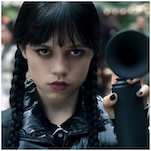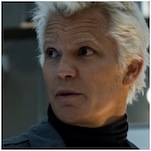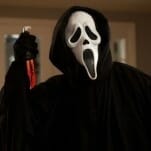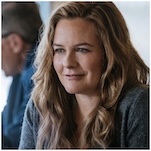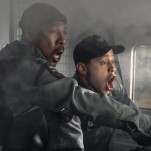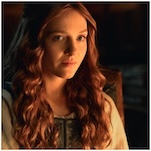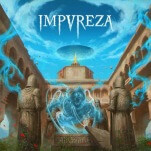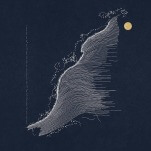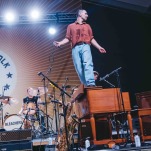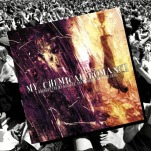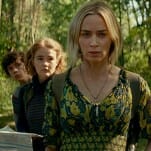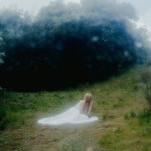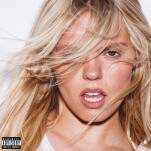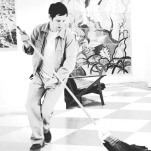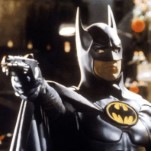SOAK: The Best of What’s Next
SOAK, aka Bridie Monds-Watson, is 18 years old but isn’t teenage. Like most, she echoes the general consensus that growing up is weird, bewildering even. But unlike most, Bridie casually strolls through the chaos, using music as a personal respite, a way to wade through the hazy parts. Sure, Bridie’s music is about being a teenager, but her voice is never twee. It is instead, a wise, unwavering, persistently transparent take on adolescence and the misplaced teenage dream.
Several of Bridie’s songs were written between the ages of 13 to 16, a period my mother commonly refers to as the “morbid phase.” But after speaking with Bridie on the phone, I can confirm what her music suggests, that unlike young people who fall happily into the trap of that somehow comforting feeling that life is unfair and everything sucks, Bridie is too smart for teenage angst. She doesn’t complain, she ponders.
“I started writing music when I was 12 or 13. It was a way to talk about things without having to actually, directly talk about them. I was able to choose what I talk about in my songs.”
Bridie is effortlessly cool, and perceptive in a way that makes you feel she could solve all of your greatest problems, teenage or otherwise, if you give her just five to 10 simple words (see: “If Everyone is Someone, No One is Everyone.”) She’s getting a cactus tattoo inspired by her recent visit to Texas for SXSW. She played in a band called “That’s What She Said” when she was 12. She thinks the female singer/songwriter label is lazy, but she doesn’t “absolutely hate it.”
Bridie is from Derry, Ireland. She describes it as a history-steeped place, known for an event called Blood Sunday, “a thing here where people got shot,” and talks about a peace bridge that now connects two sides of a river. “Oh, and the Undertones are from here!” she exclaims.
Her forthcoming album, Before We Forgot How To Dream, out June 2 on Rough Trade, is what Bridie calls “a weird musical documentation of significant life events,” all of which were written between the ages of 13 and 18.
Bridie sings about the challenges associated with such an extreme change with the wisdom of someone who’s been there more than once but the voice of someone too young to have been there at all, someone too sweet. “It’s about everything teenagers grow up in. Some songs are about my parents divorcing, friend situations, everything.”
And although Before We Forgot How To Dream is in fact a coming of age album and an intimate look at a teen mind, the themes are somehow universally relatable—outgrowing your old self, someone having a problem you can’t fix, wanting to forget, loneliness.
“It’s called Before We Forgot How To Dream because it’s songs from that time, which is kinda safe. It means the time before everybody grows up and has to be real, when people stop believing in things.”
The music is, like Bridie, steady, telling, and real with outbursts of unexpected cheer. With acoustic guitar at the core of the instrumental, Bridie’s sound is so bare, you have no choice but to step inside her mind and live there for a bit. And there to guide you through the moody parts and the bright parts, is the thread that pulls it all together—Bridie’s voice.
Bridie’s voice is that of a girl you want to get to know. A girl who can take the lines “You’re in my blood. I’m in your blood” and make them sound anthemic. She sounds like no one. She also has a relatively peculiar Irish accent.
-

-

-

-

-

-

-

-

-

-

-

-

-

-

-

-

-

-

-

-

-

-

-

-

-

-

-

-

-

-

-

-

-

-

-

-

-

-

-

-

